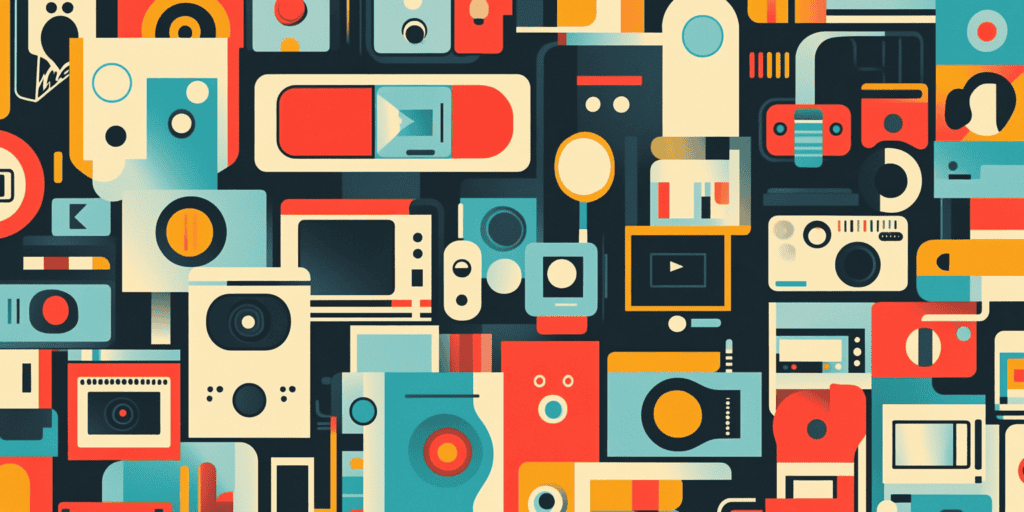
Alright, let’s cut the Bu!!S#T—*fandoms are basically cults, just with more Funko Pops and fewer Kool-Aid-related incidents. Whether you’re a Swiftie, a Star Wars purist, or one of those people who cried when Club Penguin shut down (RIP, you beautiful, pixelated paradise), you’ve probably been emotionally wrecked by pop culture at some point.
And that’s because our brains are wired for obsession. It’s not just about loving a thing—it’s about identity, community, and even a little tribal warfare.
Why the F^%K Do We Get So Attached?
1. It’s Our Brain’s Fault
The human brain is a socially desperate little meat computer. It craves connection and meaning, and pop culture gives us both on a silver platter.
- When you listen to your favorite artist, your brain literally releases dopamine—the same happy drug it gives you when you eat cake or get laid.
- When you rewatch your favorite movie for the hundredth time, it activates comfort and nostalgia circuits, making you feel like you’re wrapped in an emotional security blanket.
- When your favorite fictional character dies, your brain processes it as if you lost a real friend—because emotionally, you kind of did.
2. We Crave Community (and a Good F^%king Fight)
Fandoms are basically modern tribes. In the same way ancient humans bonded over surviving the wild, modern fans unite over defending their problematic faves or battling Twitter trolls over whether The Last Jedi is a cinematic masterpiece or a steaming pile of Sith dung.
It’s the same reason people join sports teams, political movements, or weirdly intense knitting circles—we love feeling like we belong.
And let’s be real—people also love picking fights. There’s nothing quite like yelling at a stranger online about why their opinion on Harry Potter is dogS#*T.
3. The Power of Parasocial Relationships
Ever felt like a celebrity was your real friend, even though they don’t know you exist? Congrats, you’ve experienced a parasocial relationship—when your brain mistakes a one-sided connection for something mutual.
- That’s why people freak the F^%K out when their favorite musician gets married—because deep down, their brain feels a personal connection (even though that celeb has never once acknowledged their existence).
- It’s why people cry at concerts, why YouTube personalities have terrifyingly devoted fanbases, and why folks will actually fistfightover which K-pop idol is the best.
The Dark Side of Fandom: When S#*T Gets Weird
Fandoms can be beautiful, but let’s not ignore the absolute batS#*T insanity that comes with them.
- Toxic Gatekeeping: “You’re not a real fan unless you’ve read the obscure 1982 novel the movie is based on.”
- Fan Wars: Swifties vs. Kanye stans. Star Wars purists vs. sequel lovers. Console gamers vs. PC gamers. It’s bloodsport.
- Stan Culture Going Too Far: Death threats, doxxing, and turning on their own idols when they make the slightest mistake.
At their worst, fandoms can be obsessive, cult-like, and straight-up terrifying. When people’s entire identity is built around something external, they will go to war to protect it—because any criticism feels like a personal attack.
Is Fandom Actually Good for Us?
Hell yeah, it is—if you don’t let it consume your goddamn soul.
- Fandoms build friendships
- They give people a sense of belonging
- They inspire creativity (fanfiction, fan art, memes, and remixes)
- They can even be life-changing (music and movies have genuinely helped people through rough times)
The trick is to love the thing, but don’t let it own you.
Final Thought: Love S#*T, But Don’t Be a D!CK
At the end of the day, being passionate about something is awesome. Just don’t be an A$$hole about it. Defend your fandom, sure—but don’t turn into a gatekeeping, internet-stalking psycho. The world’s already full of enough B@ST@RDS; don’t add to the pile.
Now go forth, enjoy your favorite S#T, and *don’t be a d!ck.
FAQ: Fandoms, Obsession, and Why We Lose Our F^%KING Minds
Q: Is it weird that I care so much about fictional characters?
A: Nope! Your brain literally treats them like real people. The real question is: Are you functioning like a normal human, or are you sending death threats to authors over bad plot twists? If it’s the second one, go touch some grass.
Q: Why do people get into fights over pop culture?
A: Because humans are tribal AF. Your lizard brain sees criticism of your favorite thing as a personal attack, so it goes into defensive war mode. But seriously, no one has ever died because someone disliked their favorite band. Chill the F^%K out.
Q: What’s the most toxic fandom?
A: OOF. Hard to say, but K-pop stans, Star Wars purists, and hardcore sports fans are all scarily intense. Some people will literally ruin their lives over internet fights.
Q: Is it bad to be in a fandom?
A: Absolutely not. Fandoms are fun as F^%K when you keep them healthy. Just don’t let them take over your entire existence or turn you into a raging lunatic.
Q: Why do people act like they’re friends with celebrities?
A: Because our brains are stupidly gullible when it comes to parasocial relationships. Watching someone on screen tricks our monkey brain into thinking we “know” them. You don’t. Move on.
